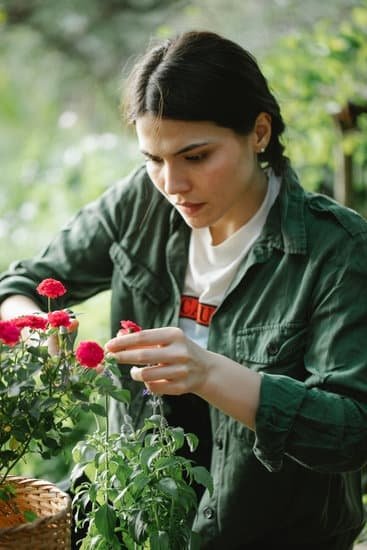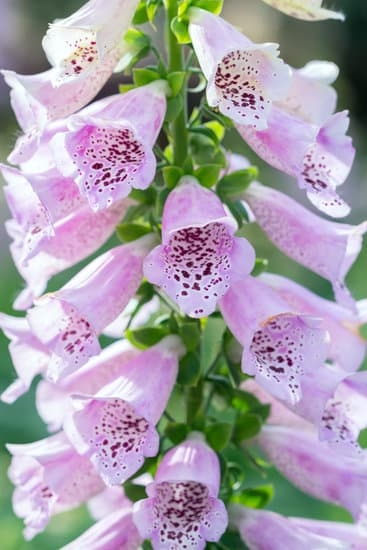Best Gardening Tips On Instagram
There are a lot of gardening tips floating around on Instagram, and it can be tough to know which ones to trust. After all, not everyone who posts about gardening is an expert!
That’s why we’ve put together this list of the best gardening tips on Instagram. From advice on starting a garden to keeping your plants healthy, these tips will help you make the most of your garden this year.
1. Start with a plan
One of the best things you can do for your garden is to start with a plan. Planning out your garden ahead of time will help you figure out what you need, what will fit in your space, and how to make the most of your garden.
2. Choose the right plants
Not all plants are created equal – some will do better in sun, others in shade, and still others in a mix of both. Make sure to choose plants that will thrive in your garden’s conditions.
3. Use organic methods
One of the best ways to keep your garden healthy is to use organic methods. Not only are organic methods better for the environment, but they also work to build up the health of your soil, which is essential for a thriving garden.
4. Water wisely
Water is essential for plants, but you don’t want to water them too much or too little. Find out how much water your plants need and water them accordingly.
5. Mulch your plants
Mulching your plants is a great way to keep them healthy and protect them from pests. Mulch also helps to retain moisture in the soil, which is especially important in hot climates.
6. Prune your plants
Pruning your plants is an essential part of gardening. It helps to keep your plants healthy and looking their best, and it can also help them grow better.
7. Weed your garden regularly
Weeds can quickly take over a garden, so it’s important to weed it regularly. Weeding also helps to keep the soil healthy and free of pests.
8. Use compost
Compost is a great way to improve the health of your soil and help your plants thrive. It’s also a great way to recycle your kitchen scraps.
9. Use pesticides sparingly
While pesticides can be helpful in keeping pests away, it’s important to use them sparingly. Overuse of pesticides can be harmful to the environment and to your plants.
10. Enjoy your garden!
The best thing about gardening is that it’s a hobby that can be enjoyed year-round. Take time to relax in your garden and enjoy the fruits of your labor!
Best Backyard Gardening Tips
The best time to start a backyard garden is in the early spring, as soon as the weather permits. However, it is never too late to start gardening, no matter what time of year it is.
To get started, you will need to choose a spot in your backyard that gets plenty of sunlight. The soil should also be fertile and well-drained. If your soil is not ideal, you can amend it with organic matter such as compost or manure.
Once you have chosen a spot, you will need to prepare the soil. This can be done by tilling it or using a garden fork to loosen the soil. Then, add compost or manure and mix it in well.
Next, it is time to choose your plants. There are many different types of plants that can be grown in a backyard garden, including vegetables, fruits, herbs, and flowers.
When choosing plants, be sure to choose varieties that are suited for your climate. Also, be sure to choose plants that will do well in the type of soil you have.
When planting your garden, be sure to follow the cardinal rules of spacing: plants should be spaced according to their mature size, and plants should be spaced far enough apart so that they can receive plenty of sunlight.
Watering your garden is also important. Be sure to water plants evenly, and do not over water them.
If you follow these tips, you will be able to create a beautiful and productive backyard garden.
Best Beginner Gardening Tips
Starting a garden can seem daunting, but with a little bit of know-how, you can be on your way to harvesting your own vegetables in no time. Here are some tips to help beginners get started:
Pick the right spot. When choosing a spot for your garden, make sure to take into account the amount of sunlight the spot gets, as well as the soil quality. Most vegetables need at least six hours of sunlight per day. The soil should also be rich in nutrients to help your plants grow healthy and strong.
When choosing a spot for your garden, make sure to take into account the amount of sunlight the spot gets, as well as the soil quality. Most vegetables need at least six hours of sunlight per day. The soil should also be rich in nutrients to help your plants grow healthy and strong. Choose the right plants. Not all vegetables are suited for beginners. Some plants, like tomatoes, require more care and attention than others. It’s a good idea to start with a few easy-to-grow vegetables, like lettuce or carrots.
Not all vegetables are suited for beginners. Some plants, like tomatoes, require more care and attention than others. It’s a good idea to start with a few easy-to-grow vegetables, like lettuce or carrots. Use the right tools. In order to have a successful garden, you’ll need to have the right tools. A shovel, hoe and watering can are essential for any garden.
In order to have a successful garden, you’ll need to have the right tools. A shovel, hoe and watering can are essential for any garden. Follow the right planting schedule. Make sure to plant your vegetables according to their recommended planting schedule. This will help ensure that your plants get the most out of their growing season.
Make sure to plant your vegetables according to their recommended planting schedule. This will help ensure that your plants get the most out of their growing season. Mulch your plants. Mulching your plants helps to retain moisture, which is especially important during the hot summer months. It also helps to keep the soil healthy by preventing the top layer from becoming too dry or dusty.
Mulching your plants helps to retain moisture, which is especially important during the hot summer months. It also helps to keep the soil healthy by preventing the top layer from becoming too dry or dusty. Water your plants regularly. It’s important to water your plants regularly, especially during the summer months. Make sure to water your plants early in the morning or late in the evening, so the sun doesn’t evaporate the water too quickly.
It’s important to water your plants regularly, especially during the summer months. Make sure to water your plants early in the morning or late in the evening, so the sun doesn’t evaporate the water too quickly. Be patient. Don’t expect to see results overnight. It takes time for vegetables to grow, so be patient and keep up with your gardening routine.
With these tips in mind, you’re ready to start your very own vegetable garden. Just remember to have fun and enjoy the process!
Best Gardening Tips India
A well-maintained garden is a beautiful sight. It can add a touch of elegance and serenity to any home. However, gardening can be a daunting task, especially if you are new to it. Here are some tips to help you get started:
Choose the right plants: Not all plants are suited for every climate. Make sure to choose plants that will thrive in your region.
Not all plants are suited for every climate. Make sure to choose plants that will thrive in your region. Plan before you plant: Decide what you want your garden to look like and plan accordingly. This will help you avoid overcrowding and ensure that each plant has enough room to grow.
Decide what you want your garden to look like and plan accordingly. This will help you avoid overcrowding and ensure that each plant has enough room to grow. Use the right soil: Good soil is essential for healthy plants. Make sure to use a quality soil mix to ensure your plants get the nutrients they need.
Good soil is essential for healthy plants. Make sure to use a quality soil mix to ensure your plants get the nutrients they need. Water regularly: Plants need water to thrive. Make sure to water your plants regularly, especially during hot weather.
Plants need water to thrive. Make sure to water your plants regularly, especially during hot weather. Fertilize regularly: Fertilizing your plants regularly will help them grow healthy and strong. Choose a fertilizer that is suited for your plants and soil type.
Fertilizing your plants regularly will help them grow healthy and strong. Choose a fertilizer that is suited for your plants and soil type. Mulch: Mulching your garden will help keep the soil moist and prevent weeds from growing. Choose a mulch that is suited for your climate and plants.
Mulching your garden will help keep the soil moist and prevent weeds from growing. Choose a mulch that is suited for your climate and plants. Prune regularly: Pruning your plants regularly will help them grow healthy and strong. Prune plants according to their individual needs.
Pruning your plants regularly will help them grow healthy and strong. Prune plants according to their individual needs. Protect your plants: Protect your plants from pests and diseases by using pesticides and fungicides. Make sure to read the label carefully and follow the instructions.
Protect your plants from pests and diseases by using pesticides and fungicides. Make sure to read the label carefully and follow the instructions. Enjoy your garden: Gardening is a fun and rewarding hobby. Take the time to enjoy your garden and relax while you work.
Gardening is a fun and rewarding hobby. Take the time to enjoy your garden and relax while you work. Ask for help: If you are having trouble with your garden, don’t hesitate to ask for help. There are many gardening experts available who can help you get your garden back on track.
Gardening can be a fun and rewarding hobby. With a little bit of effort, you can create a beautiful garden that will add value to your home and provide you with many hours of enjoyment. Follow these tips and you will be on your way to gardening success.
Best Vegetable Gardening Tips
for Beginners
Starting a vegetable garden can be a fun and rewarding experience, but there are a few things that you should know before you get started. Here are some of the best vegetable gardening tips for beginners:
1. Choose the right vegetables
Not all vegetables are well-suited for beginners. Some vegetables, such as tomatoes and peppers, require a lot of care and are not ideal for beginners. Instead, try choosing vegetables that are easy to grow, such as lettuce, spinach, and carrots.
2. Choose the right location
When choosing a location for your vegetable garden, keep in mind that some vegetables need plenty of sun, while others prefer shade. Additionally, make sure to choose a location that is well-drained and has good soil quality.
3. Prepare the soil
Before planting your vegetables, you will need to prepare the soil. This can be done by adding organic matter such as compost or manure to the soil. Be sure to mix it in well and break up any clumps.
4. Plant the vegetables
Once the soil is ready, it is time to plant the vegetables. Be sure to follow the instructions on the seed packet, and space the plants appropriately. If you are planting a row of vegetables, be sure to plant the seeds at the correct depth.
5. Water the vegetables
Vegetables need water to grow, so be sure to water them regularly. How often you water the vegetables will depend on the weather and the type of soil you have.
6. Harvest the vegetables
Once the vegetables are ripe, it is time to harvest them. Be sure to harvest the vegetables regularly so that they do not over-grow and become bitter.

Welcome to my gardening blog! I am passionate about plants and enjoy sharing my knowledge and experiences with others. In this blog, I will write about everything related to gardening, from tips on how to get started to updates on my own garden projects.





